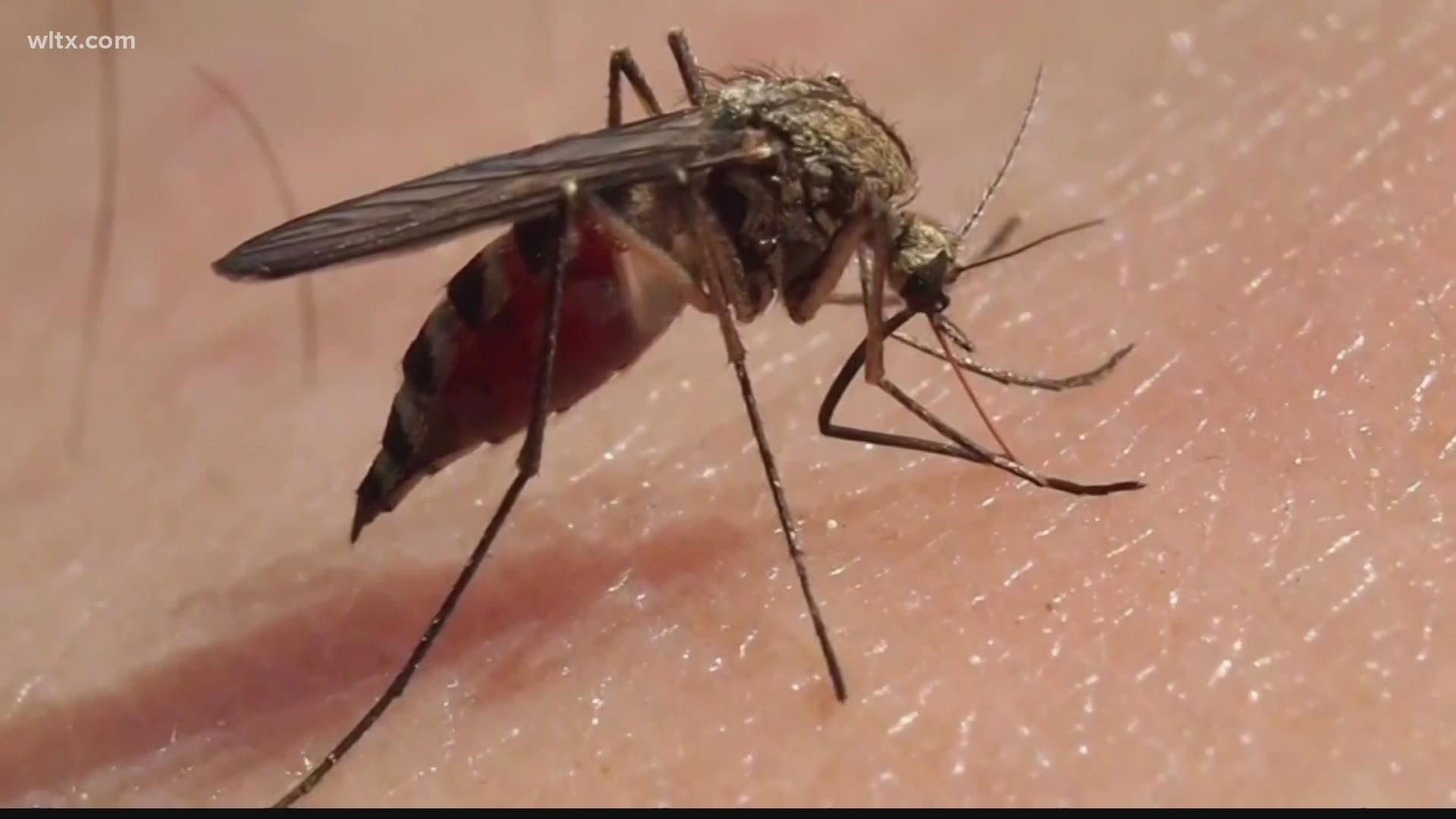COLUMBIA, S.C. — While City of Columbia has been alerted of the human transmission of West Nile virus in the city, the South Carolina Department of Health and Environmental Control (DHEC) has reported six human cases in Richland County in 2022. The virus is transmitted to the blood system through infected mosquito bites. DHEC is alerting residents because of multiple confirmed birds, mosquitos, and human cases clustered in time and geographic location.
DHEC considers these cases in humans and animals to amount to an outbreak in progress and urges residents to used protective measures against mosquitos, including repellants.
While the City of Columbia is continuing its practice of spraying for adult mosquitoes through the remainder of the season, residents are urged to protect themselves by:
- Using, according to the label instructions, EPA-registered insect repellents that contain DEET, Picaridin, IR3535, or oil of lemon eucalyptus
- Emptying and turning over outdoor containers holding water
- Making sure there are screens on rain barrels and using the water as soon as possible
- Changing the water in pet dishes, birdbaths, and plant containers at least once a week
- Properly maintaining swimming pools
- Cleaning clogged roof gutters
- Eliminating overgrown grass, weeds, and shrubbery
- Clearing drainage ditches of debris and weeds
- Packing tree holes with sand
- Keeping boats overturned, drained, or covered (covers should not collect water)
- Stocking ornamental ponds and water gardens with top-feeding minnows.
The city's spraying to control the mosquito population is usually conducted between midnight and dawn; however, it is possible for spraying to happen earlier depending on conditions. Residents allergic to the products permethrin, deltamethrin, or tau-fluvalinate should notify vector control staff by calling the City of Columbia Code Enforcement Office at 803-545-4229.
All beekeepers should call code enforcement to notify staff of their hives.
The Centers for Disease Control and Prevention (CDC) says most people (eight out of 10) will not develop any symptoms of West Nile. However, about one in five people do develop symptoms that include headache, body aches, joint pains, vomiting, diarrhea, or rash. Most people with febrile illness due to West Nile virus recover completely, but fatigue and weakness can last for weeks or months.
About one in 150 people develop serious symptoms that affect the central nervous system such as encephalitis (inflammation of the brain) or meningitis (inflammation of the membranes that surround the brain and spinal cord).
- Symptoms of severe illness include high fever, headache, neck stiffness, stupor, disorientation, coma, tremors, convulsions, muscle weakness, vision loss, numbness, and paralysis.
- Severe illness can occur in people of any age; however, people over 60 years of age are at greater risk for severe illness if they are infected (one in 50 people). People with certain medical conditions, such as cancer, diabetes, hypertension, kidney disease, and people who have received organ transplants, are also at greater risk.
- Recovery from severe illness might take several weeks or months. Some effects on the central nervous system might be permanent.
- About one out of 10 people who develop severe illness affecting the central nervous system die.
If you suspect you have contracted West Nile virus, see your healthcare provider for treatment.
There is no vaccine or specific medicine available for the treatment of West Nile virus infection. Over-the-counter medication may relieve symptoms and can reduce fever. In severe cases, patients often need to be hospitalized to receive supportive treatment, such as intravenous fluids, pain medication, and nursing care.

